Every year, at both the halfway point and the end of the year, there’s a challenge for the team members to pick their favorite new game. Sometimes it’s a struggle between two titans of excellence, while other times it requires separating the good from the great. We’re pretty fortunate to have an embarrassment of riches of excellent games to play, along with the occasional stinkers. What’s got the BGQ team fired up this year? Will any of these hang on to be on our best of the year at the end of the year? And what have we missed? Let us know in the comments below or join us on Discord.
Best Board Games of 2025… So Far
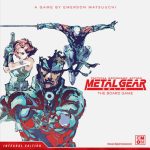 Metal Gear Solid: The Board Game
Metal Gear Solid: The Board Game
Chosen by Tony
For me, it was a tight race between Metal Gear Solid and Dice Throne X-Men Missions. But in the end, I’m going for the surprise hit for me. I’m a big fan of stealth action games, and while I’ve tried a lot of them, many just missed the mark for what I was looking for. Metal Gear Solid was able to walk the line of being true to its source material while also making an amazing tabletop board game. It also solved the issue of what to do when the alarm is triggered in a stealth game. Many games just throw wave after wave of enemies at you, grinding the gameplay down into a slog. However, Metal Gear gives you ways to reenter stealth mode, keeping the gameplay dynamic. This not only makes decisions more interesting, but also gives you a chance to play missions in your own way. For a game that could have been a simple cash grab, trading off its IP, it ended up being a fantastic game in its own right.
1-4 Players • Ages 14+ • 60-90 minutes • $99
 Hot Streak
Hot Streak
Chosen by Brandon
Degenerate gamblers unite! The new hotness of 2025 is in the wild, and it’s tailor-made to scratch your itch for risk-taking and at-home cheering (and screaming). Each session of Hot Streak features the wacky attempts of four off-brand mascots trying to cross the finish line based on how cards are revealed from a central deck. Mechanisms include drafting and deck manipulation. And then the race begins. Mascots trip over their own feet. They turn around and run the wrong way. They drift into other lanes and off the track completely. They delight and frustrate, and hopefully, with some strategy and a lot of luck, they will earn you all the paper money your heart desires. It’s a riot. A real bun banger. And a filler staple.
2-9 Players • Ages 6+ • 20 minutes • $50
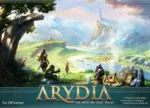 Arydia: The Paths We Dare Tread
Arydia: The Paths We Dare Tread
Chosen by James
Good things come to those who wait, or so every creator running late will have you believe, but in the case of Arydia, it’s a masterpiece. Each character is a race and a class, the latter of which will drive a unique personal quest. You and your group play as outcasts trying to earn your way back into society by helping people around the land and earning wooden Squills. As you adventure through areas, you will encounter NPCs with traits that assist you in role-playing them, if that’s your thing. Combat has you using abilities and items that do damage in directions, and with most die rolls hitting for one or more spaces of damage, meanwhile, the enemies gain threat, which dictates their actions on their turns. I’m a third of the way through the game, and it’s been a nearly perfect experience between exploring a world where you go from an area map to a large town square and then into a building and then its cellar, fun combat, and gaining abilities. The production is also *chef kiss* with pre-painted minis, dual-layer player boards, and super clean card organization and game save system.
1-4 Players • Ages 14+ • 60 -240 minutes • $240
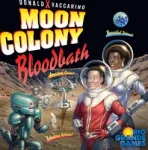 Moon Colony Bloodbath
Moon Colony Bloodbath
Chosen by Brian W
This was a no-brainer for me. This game not only caught me off-guard by how much fun it was, but it’s really good, win or lose. This is an engine-building game that uses a shared “Progress” deck. This deck contains mostly negative effects for players, and more cards will be added as the game progresses. Players will try to add various buildings to grow their moon colony, and some buildings act as engines to generate different resources like food, money, people, or boxes. The Progress deck also includes 4 work cards that allow players a positive result to either: build (a building if able), restock (gain boxes), mine (gain money), farm (gain food), or research (gain cards). Now, this game is also an engine-losing game too, because when you burn through your reserve of people tokens, you must destroy buildings to gain more people to stay in the game. The game ends when one player’s moon colony has no people remaining or when players reach the Instruction Manual event. The player with the most people tokens and people listed on any remaining buildings wins.
1-5 Players • Ages 14+ • 45-90 minutes • $50
 Molly House
Molly House
Chosen by Bailey
Set in eighteenth century London, Molly House sees players playing as, well, mollies: gay men and gender non-confirming folx who are simply looking to live their lives. In fact, the “victory points” of the game are tracked in “Joy”. However, it’s not so easy for the queer community of London to thrive (sound familiar?): The Society seeks to end the follies of the community and infiltrate, or slowly end, it. Molly House has players cycling a hand of cards, trying to build up their best hand for the Festivities. However, moving around the city and completing actions causes rumors to start to fly, and as the rumor mill begins to crest, certain parts of the board become more dangerous to navigate. With multiple paths to victory, semi-cooperation, and a minor trick-taking element, this game isn’t for everyone; however, its theming is more prescient than ever, and anyone loosely interested in this title should check it out.
1-5 Players • Ages 14+ • 60-120 minutes • $75
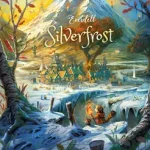 Everdell Silverfrost
Everdell Silverfrost
Chose by Victoria
Everdell 1.0 is one of the most-played games in my collection, so expectations for Everdell Silverfrost (aka v. 3.0) were high, and in my one play, those expectations were exceeded to the point that I think this could potentially replace base Everdell + Newleaf expansion. Silverfrost is a medium-weight card-driven game where players engage in worker placement, engine building, and resource management to build up a city for adorable and exquisitely rendered forest creatures. Silverfrost will feel very familiar to fans of Everdell, but with several key changes and additions that enhance the gameplay. New beacon spots provide access to super-powerful one-time actions that rotate throughout the game, bringing much tactical excitement. Luck of the draw is reduced by chimneys that allow more generic linkage of cards. Player interaction has also been heightened in a few ways. Many cards now affect your neighbors positively. Quests, also new, give players more to focus on in-game, and many of their criteria are scored relative to other players. Snowfall, an obstacle for all players on the main board, can be triggered and cleared by specific player actions. The excellent gameplay answers the question, “Did we really need another version of this already great game?” with a “Yes!”
1-4 Players • Ages 10+ • 30-120 minutes • $100
 Azul: Duel
Azul: Duel
Chosen by April
Yes, it’s another two-player implementation of a game that was already good with two, but this one surprised me. I had almost no expectations going in, and I found that this two-player version of Azul added and changed just enough to make it a worthy experience of its own. It feels more dynamic than the original, offering the players decisions that are tense and meaningful. Not only are you filling your board with tiles, but you’re also creating the grid itself by placing dome plates. This, along with randomized objectives each game, makes every play that much more unique and adds just a touch of complexity. It quickly has become one of my favorite two-player versions of any game, but it has received some harsh judgment from hardcore fans of original. Sure, it’s not for everyone, but if you want Azul for two with a little more pizzazz, give it a try.
2 Players • Ages 10+ • 30-45 minutes • $26
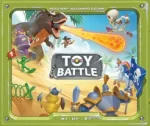 Toy Battle
Toy Battle
Chosen by Chris
I’ll admit I had, at best, moderate expectations for this two-player, area-tactical, troop-placement game that feels (and looks) like Stratego for preschoolers, but I have thoroughly enjoyed my plays thus far. It plays fast, comes with a ton of boards that all feel pretty different, and is unencumbered by overly complicated rules. Paolo Mori designs a ton of games that follow a similar pattern (Fairy Tale Inn, Libertalia, Ethnos, Captain Flip), and all are successful at what they do. This is a codesign with Alessandro Zucchini, and it’s a breezy blast to play. Every play thus far for me has ended with both participants immediately demanding a rematch.
2 Players • Ages 6+ • 60 minutes • $29
 Ascension Tactics: Inferno
Ascension Tactics: Inferno
Chosen by Marcus
A few years ago, the type of game I didn’t know I needed was a deckbuilding miniatures game. Along came Ascension Tactics (after a pandemic-induced delay), merging deckbuilding and tactical miniatures. My first impression was that this was a weird fusion, but the gameplay delivered. This year saw the release of Inferno, the follow-up, standalone expansion. In Tactics, you are building a deck in a similar fashion as the original Ascension, but with some significant differences. Constructs attach to and buff your minis (champions), the center deck contains additional champions you can recruit to your team, and power is used to activate your champions rather than fight monsters. The myriad champions have different stats and abilities, and are how you achieve victory in the various scenario setups (often gaining points by controlling certain locations on the map). The interaction between your deck and the miniatures has always been the game’s winning innovation. It feels like you expect an Ascension game should, but… cooler. Inferno isn’t just more of the same either. It brings in new characters that switch some things up about the gameplay (in particularly the transforming champions). Also, Beezlepug. All hail Beezlepug.
1-4 Players • Ages 10+ • 45-90 minutes • $60
 Ruins
Ruins
Chosen by Dawn
Our gaming group loves card games, from trick takers to set collectors to shedders. We are always looking for a new twist on the old mechanisms. Taking a page from Mystic Vale, Ruins offers a shedder with card crafting. Players begin with basic cards in sleeves and in usual shedder style, follow the leader, trying to empty their hand first. The twist comes when the player spends flames to buy upgrades to slide into the sleeve to enhance their ruin cards. These enhanced cards stay in the deck and will be dealt out in later rounds, making future hands even more powerful. Each player being able to permanently claim cards is another interesting twist. Other than the annoying cleanup of removing the upgrades and flipping over cards in the sleeves after each game, Ruins offers a refreshing take on an aging theme.
2-5 Players • Ages 13+ • 40 minutes • $19
7 Empires
Chosen by Andy
Mac Gerdts is a prolific designer who loves to explore constrained choice, action-selection mechanisms like open hand management and rondels. He’s best known for Concordia, but Navegador, Imperial/Imperial 20230, and the Antike series are all great games that share the common mechanism of giving players enough choice to choose a distinct path but keeping the options narrow enough to drive tension and limit A/P. 7 Empires iterates on the choice mechanisms in the Imperial line of games. Players buy shares in the great powers of the 18th century and vie to control those powers’ actions over the course of 8 to 10 rounds. On any given turn, each Empire can only do one of three available actions, after which that action becomes unavailable to that power for the next two rounds. In the end, players’ scores are entirely based on how many shares they own in each Empire. Coalitions of players form as it becomes clear who wants a given Empire to succeed and who wants to get control just long enough to tank the Empire they hope to push to the bottom of the rankings. It’s quick, fun game that can teach itself in a turn or two and from there zooms to a fun conclusion.
2-6 Players • Ages 14+ • 90-150 minutes • $50
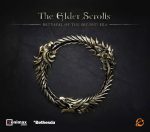 The Elder Scrolls: Betrayal of the Second Era
The Elder Scrolls: Betrayal of the Second Era
Chosen by Brian B:
I love the following: Skyrim, Chip Theory Games, ESO (Elder Scrolls Online), Uncrustables, and Too Many Bones. I went All In on its crowdfunding campaign, assuming I would love the game. With the exception of CTG missing out on the obvious Elder Scrolls x Uncrustables collab, this game exceeded my already high expectations. The customization is unlike any tabletop board game I have ever played. You can be any race/class combination, along with learning any skills that you want. The quests you take are provided by one of nine guilds, sending you to one of six lands. Layer in better than Too Many Bones gameplay, and I have what is easily my favorite game of 2025 thus far. I highly recommend this game and cannot wait for the expansions!
1-4 Players • Ages 14+ • 120-240 minutes • $225
Honorable Mention:
 Galactic Cruise
Galactic Cruise
Chosen by Victoria
This game will have fans of meaty Lacerda games, and the like, salivating. In Galactic Cruise, players compete to be crowned the next CEO of a luxury space tourism company. They must prove their mettle by building ships, scheduling flight plans, recruiting tourists, and preparing the necessary provisions as efficiently as possible using a combination of worker placement, engine building, and resource management. This game is an intense race to achieve company objectives and launch as many flights as possible, but players will also help each other along the way by bumping one another’s workers and sharing technology and resources. Variable set-up and 36 unique agenda cards will make every play feel like a novel challenge.
1-4 Players • Ages 14+ • 90-150 minutes • $149




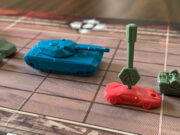

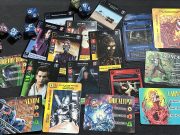
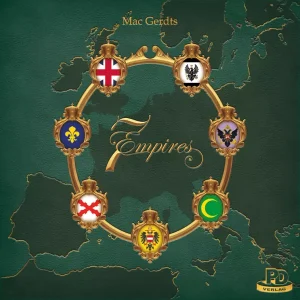
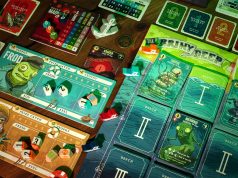













Everyone name drops Lacerda when discussing Galactic Cruise, that’s fine, but then they should also say who actually designed the game.